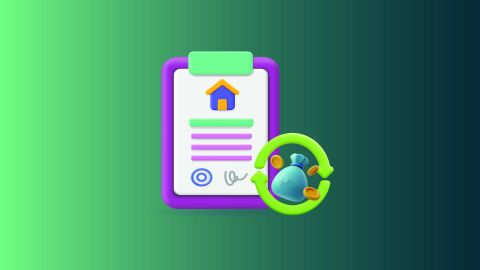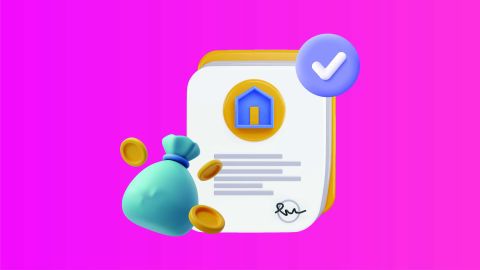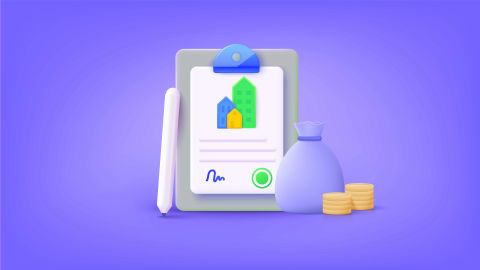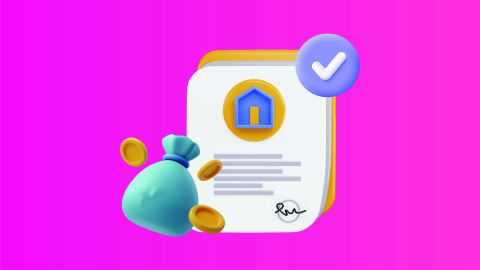A loan against property is a secured loan that you can avail against your residential or commercial property. It is a secured loan with a tenor of up to 18 years. Like most secured loans, a loan against property too has comparatively lower interest rates. When you opt for a Bajaj Finserv Loan Against Property, you have the option of choosing between floating and fixed interest rates.
While you’re exploring floating and fixed interest rates for your loan against property, did you know you can unlock additional funds with Bajaj Finserv Loan Against Property? Whether you need money for home renovation, business expansion, or even your child’s higher education, leveraging your property’s value can help you meet diverse financial goals at attractive interest rates. It’s a smart way to get the funds you need without disrupting your current finances. Get loan of up to Rs. 10.50 crore against your property within 72 hours* of the approval.
It is important to choose wisely for two reasons:
It is important to choose wisely for two reasons:
- It affects your EMI amount
- It impacts your repayment planning
Here is what you need to know about floating and fixed interest rates to decide which option is the best for you.
What is the floating interest rate on Loan Against Property?
- A floating interest rate implies that the rate of interest is subject to revision every quarter. The interest charged on your loan will be pegged to the base rate determined by the RBI based on various economic factors. With changes in the base rate, the interest charged on your loan will also vary.
- Changes, if any, in the interest rate during the tenor of the loan will not affect the EMI; instead, the tenor of the floating interest loan will vary.
- On loans with floating interest rates, lenders cannot apply any prepayment penalty per the rules of the RBI.
Thinking about how to manage your EMIs efficiently? With Bajaj Finserv Loan Against Property, you get flexible repayment options that make it easier to fit your monthly payments into your budget. Plus, if you expect your income to rise, the convenient interest rate option lets you manage your needs. It is financial flexibility tailored just for you! Get access to large funds with the flexibility to part-prepay your Flexi Loan at no extra cost.
What is the fixed interest rate on Loan Against Property?
- A fixed interest rate implies that the lending rate is fixed for the term of your loan. Typically, fixed interest rates are 1% to 2% higher than current floating interest rates.
- Fixed interest loans provide a sense of certainty to you as you know the monthly instalments and loan tenor beforehand. However, keep in mind that fixed rates on long-tenor loans, like mortgage loan, switch to floating interest in a few years, depending on your lender’s terms. This is called a reset.
Also read: Understanding the charges on your loan against property
When to choose a floating Interest rate?
- Choose floating interest rates when you perceive that the base rate will either stay constant or reduce over time. In this case, the interest charged on your loan will either stay the same or reduce.
- Also, choosing a floating interest allows you to make prepayments with excess income that can help you pay off your loan faster and even reduce the total interest levied on your loan. So, if you see potential rises in your income in the future, a floating interest may work better.
When is fixed interest rate ideal?
- A fixed interest rate is ideal when you are comfortable with the EMI you are paying and do not want any surprises. Try and keep the EMI at 25% or less of your salary to ensure you meet the EMI payment deadlines without difficulty.
- Fixed interest loans help you to plan your finances better as the EMI and the tenor are predetermined.
- It also helps when you do not want to take market risks associated with an increase in interest rates.
Additional read: How is a loan against property processed?
Can you change from fixed to floating and vice-versa?
It is possible to shift from floating to fixed interest rates and vice-versa. However, when switching, remember that you may be levied a charge. This conversion fee may be up to 2.36% (inclusive of applicable taxes). Choosing between a floating and fixed interest rate is an important decision as it affects your EMI. So, exercise due diligence to make an informed decision that best suits your financial position and needs.
Did you know a loan against property can also boost your business growth? If you own a property, Bajaj Finserv Loan Against Property lets you tap into funds for inventory, equipment, or working capital needs — all at competitive rates. This way, your property becomes more than just an asset; it becomes a source of opportunity to expand and thrive. By using your property as collateral, you can unlock access to large funds of up to Rs. 10.50 crore—it is a smart way to manage your finances with ease! Get funds within 72 hours* of approval.
DISCLAIMER:
While care is taken to update the information, products, and services included in or available on our website and related platforms/websites, there may be inadvertent inaccuracies or typographical errors or delays in updating the information. The material contained in this site, and on associated web pages, is for reference and general information purpose and the details mentioned in the respective product/service document shall prevail in case of any inconsistency. Subscribers and users should seek professional advice before acting on the basis of the information contained herein. Please take an informed decision with respect to any product or service after going through the relevant product/service document and applicable terms and conditions. In case any inconsistencies observed, please click on reach us.
*Terms and conditions apply








